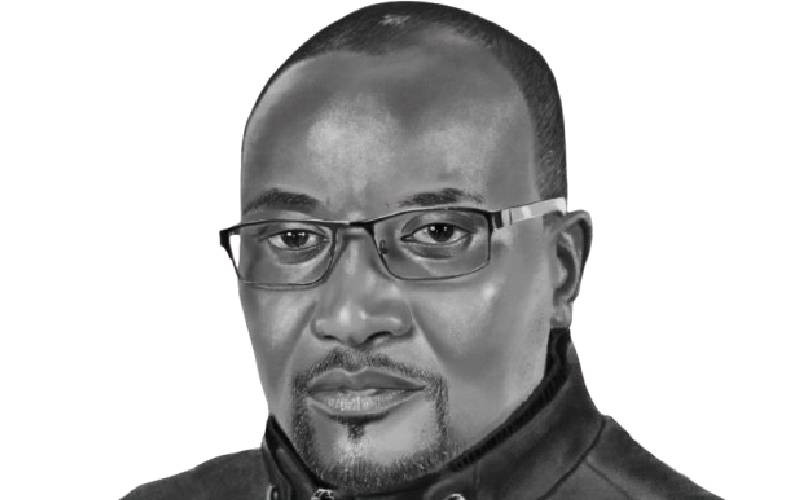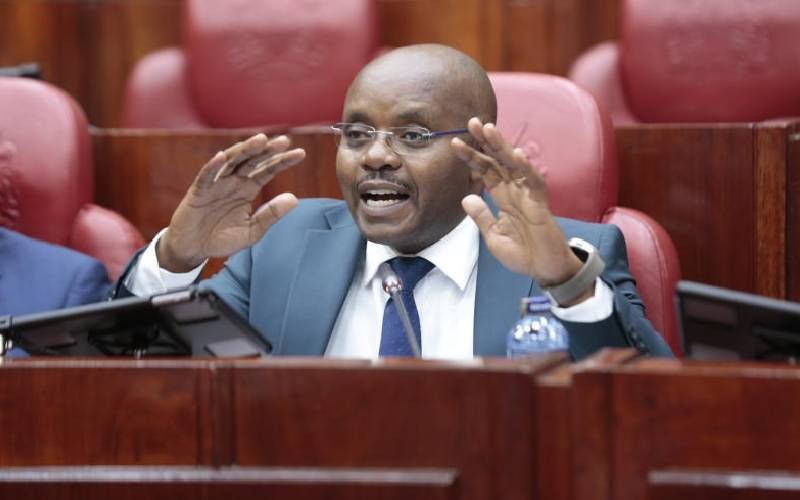
Yesterday, Oburu Oginga, Raila's right-hand man and elder brother, informed The Saturday Standard that Ruto's faction is attempting to enlist foreign powers to compel them into a dialogue.
He made these remarks as President William Ruto publicly declared his determination to confront the opposition leader directly.
Approached
According to Oburu, although the president's camp has not directly approached them for dialogue, they have pursued avenues within the international community to promote talks and bring an end to the ongoing protests.
Oburu said: "There are attempts to use foreign powers to push us into a dialogue, but nothing concrete has materialised." However, he declined to disclose the foreign countries that have made contact with them regarding the protests.
Oburu said they will only embrace dialogue if the president's camp demonstrates seriousness, emphasizing that their planned protests and actions against the government will proceed as scheduled.
He asserted that the collapse of the bipartisan talks, which concluded the initial round of negotiations, was treated with contempt by Kenya Kwanza. He argued that they cannot accept being deceived once again.
Oburu criticised Kenya Kwanza for considering the failed bipartisan talks as a mockery directed at them. He claimed that the president's camp has shown reluctance to address the issues raised by Azimio, which affect the Kenyan people.
'Backdoor power'
He dismissed Kenya Kwanza's claims that his brother Raila was attempting to seize power through a backdoor, maintaining that Raila's objective is to advocate for the interests of Kenyans.
Oburu characterised President Ruto's planned visit to Nyanza as a provocative act, stating that the timing of the visit was inappropriate.
"The president is coming to Nyanza at a time when police officers have just shot and killed innocent protesters. This is an act of provocation," he alleged.
He believes President Ruto and his allies lack sensitivity towards the struggles faced by Kenyans.
However, the Minority Leader in the National Assembly, Opiyo Wandayi, expressed skepticism about the possibility of engaging in dialogue with Kenya Kwanza.
Stay informed. Subscribe to our newsletter
"The opportunity for dialogue has passed, and our current focus is solely on the people. Anything else can be dealt with later," stated Wandayi.
According to him, the failed bipartisan talks were a significant indication of Kenya Kwanza's reluctance to address the concerns they had raised, including the high cost of living.
Another source remained noncommittal regarding the meeting at Mt Kenya Safari Club, saying, "That is beyond my level of authority. Let's wait to hear from either Raila or the president from a neighboring country to receive further details on their discussion and why the meeting was kept private."
Another source closely associated with the Azimio La Umoja Coalition showed the two leaders discussed methods of brokering a truce between Raila and President William Ruto regarding the ongoing protests in the country, which were exacerbating the already struggling economy.
"The visiting president is determined to bring the two leaders together to prevent Kenya, the largest economic powerhouse in the East Africa region, from experiencing a downfall and losing its vitality," said the leader.
Failed talks
According to the source, the involvement of the neighbouring president in facilitating a truce between the government and the opposition followed the failure of the Bipartisan talks that involved elected leaders from both sides.
"The abandoned talks between the government and the opposition caused Raila and his team to return to the streets. The president from a neighboring country has been urging for a truce between Raila and Ruto, and that's how Mohammed went to the mountain," added the source.
A Senator from the Mt. Kenya region, affiliated with Kenya Kwanza, who requested anonymity, expressed that the hardliners within their camp posed the greatest obstacles to achieving a truce between the government and the opposition.
"Some of us within the government support talks with our counterparts in the opposition, but there are concerns that a dialogue between the President and Raila will mirror the 2018 handshake between Raila and former President Uhuru Kenyatta," said the Senator.
The church and a group of business owners have been calling for dialogue between Raila and Ruto to bring stability to the country amid protests that have resulted in deaths and significant damage to businesses.
In March, religious leaders, including Catholic Bishops and Muslim clerics, expressed their readiness to lead reconciliation talks between the two leaders.
Way forward
President Ruto has called for a Parliamentary Group meeting with a select group of leaders, in hopes of receiving communication regarding the way forward and whether the reported meeting between Raila and the neighboring state will be addressed.
"We are waiting to see if the President will inform us about the meeting because we understand that the owner of the hotel is a close ally of the President. It is unlikely that the two could hold a meeting at the hotel facility," said the leader.
The bipartisan talks were initiated this month in April after both the President and Raila separately held press briefings. During the briefings, Ruto urged Raila to cease the protests in order to allow for a Bipartisan approach to address the concerns raised by the Opposition team.
"Our stance is that we want to engage with our counterparts on the other side regarding issues that are significant to Kenyans. They represent the opposition, and we represent the government," he said.
"I urge Raila and the opposition to call off the demonstrations and embrace a Bipartisan approach for the betterment of our nation."
Ruto mentioned that he has listened to the issues raised by the ODM leader and decided to soften his rigid stance for the sake of the country.
Opposition's perspective
"I have attentively listened to the concerns raised by my friend Raila Odinga. In times like these, it is not a matter of who is right or wrong. It requires courage to stand up and speak, but it also takes courage to sit down and listen," he said.
One of the issues that the President mentioned would be reassessed to incorporate the opposition's perspectives is the recruitment of the IEBC commissioners. In May, the opposition suspended the talks, citing that Kenya Kwanza was not negotiating in good faith. The deadlock arose when the discussion on the reconstitution of the Independent Electoral and Boundaries Commission failed to occur because the government side did not present its report.
The Saturday Standard has learnt that local interventions to bring calm in the country had been thwarted by hardliners on both Raila and President Ruto's sides.
 The Standard Group Plc is a
multi-media organization with investments in media platforms spanning newspaper
print operations, television, radio broadcasting, digital and online services. The
Standard Group is recognized as a leading multi-media house in Kenya with a key
influence in matters of national and international interest.
The Standard Group Plc is a
multi-media organization with investments in media platforms spanning newspaper
print operations, television, radio broadcasting, digital and online services. The
Standard Group is recognized as a leading multi-media house in Kenya with a key
influence in matters of national and international interest.
 The Standard Group Plc is a
multi-media organization with investments in media platforms spanning newspaper
print operations, television, radio broadcasting, digital and online services. The
Standard Group is recognized as a leading multi-media house in Kenya with a key
influence in matters of national and international interest.
The Standard Group Plc is a
multi-media organization with investments in media platforms spanning newspaper
print operations, television, radio broadcasting, digital and online services. The
Standard Group is recognized as a leading multi-media house in Kenya with a key
influence in matters of national and international interest.




